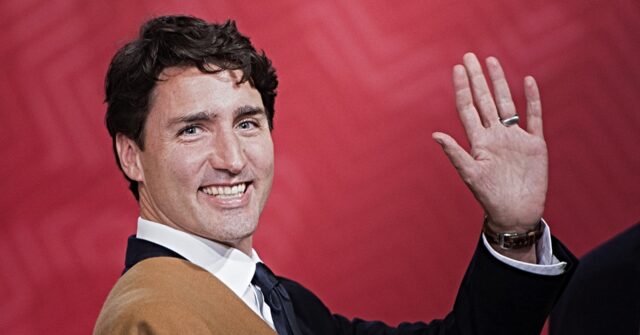Canadian Prime Minister Justin Trudeau is currently facing significant backlash amid allegations of sexism after the resignation of his deputy prime minister, Chrystia Freeland. In a move viewed as an attempt to deflect blame for his administration’s policy failings, Trudeau reportedly sought to demote Freeland, who instead chose to resign. Conservative Party leader Pierre Poilievre quickly seized upon this incident as evidence of Trudeau’s hypocrisy, particularly highlighting the contrast between Trudeau’s self-portrayal as a “proud feminist” and his actions toward Freeland. He remarked sarcastically at a press conference that it was ironic for Trudeau to blame Freeland while simultaneously criticizing the U.S. for not electing a woman president.
Trudeau’s comments at a gender representation event further fueled criticism, where he lamented the inability of American voters to elect a woman president, referring to both Hillary Clinton and Kamala Harris. This was viewed as particularly hypocritical given Trudeau’s handling of Freeland, whose recent resignation letter accused him of using “costly political gimmicks” as his popularity waned. Critics pointed out that Trudeau’s approach to challenges, particularly regarding U.S.-Canada relations with the incoming Trump administration, appears ineffective and misguided.
While Freeland opted not to explicitly label Trudeau’s behavior as sexist in her resignation, the implications were hard to ignore. Prominent female Conservative MPs expressed their outrage, questioning how any woman in politics could continue to support Trudeau given these circumstances. Notable figures like Michelle Rempel Garner and other female Conservative leaders called out Trudeau’s actions, demanding accountability and labeling the environment as reminiscent of an “old boys’ club.” Moreover, former Liberal MP Celina Ceasar-Chavannes noted that Freeland’s departure is part of a troubling pattern where women who challenge Trudeau are cast aside.
Further complicating matters for Trudeau, many Liberal party members rallied around Freeland, suggesting she enjoys greater respect and popularity within the party than he does. This division within Trudeau’s own ranks indicates growing dissent and pressure for him to resign if the party wishes to stand a chance in upcoming elections. Polls suggest that without a change in leadership, the Conservatives may lead by as much as 20 points, putting the stability of Trudeau’s government in jeopardy. Furthermore, the resignation has prompted allied party leaders to express they will no longer support the government in passing measures to avert no-confidence votes.
As the political landscape shifts, it has become increasingly clear that Trudeau’s strategy of sidelining Freeland has not resonated well, especially among feminist groups in Canada who had previously supported him. Many now perceive his survival tactic as an effort for Freeland to accept a demotion and retreat quietly into the background. The notion of Trudeau’s previously considered standing as a champion for gender equality appears at odds with his recent actions, leading to widespread disappointment among his base.
In the aftermath of Freeland’s resignation, Poilievre began to frame the Trudeau administration as chaotic and ineffective, indicating that not only has Trudeau demonstrated a lack of respect for women in leadership roles, but he has also failed to manage the country’s economy effectively. He criticized Freeland’s tenure as finance minister, arguing that the national debt grew excessively under her oversight, and painting Trudeau’s approach to governance as reckless. Amid the rising tensions and growing public discontent, it has become clear that Trudeau’s administration is at a critical juncture, its credibility and support waning as opponents call for stronger leadership in what they deem a turbulent political environment.

